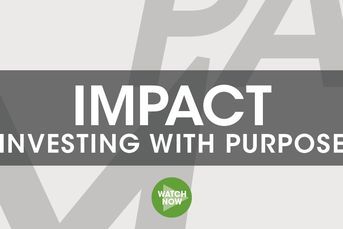‘Alpha is not dead,’ Yale declares
Yale University, the world's second-wealthiest school with a $20.8 billion endowment, said it can still beat market returns, known as generating alpha, as it seeks to stand out from other investors.
Yale University, the world’s second-wealthiest school with a $20.8 billion endowment, said it can still beat market returns, known as generating alpha, as it seeks to stand out from other investors.
The university’s investment office, run by David Swensen, said in an annual report that “alpha is not dead,” and that it remains committed to allocating much of the portfolio to alternative assets such as private equity. Yale had a 12.5% return on investments in the year ended in June, beating the 11.3% average for foundations and endowments, according to Wilshire Associates.
“The endowment was able to generate alpha even as alternative assets became increasingly capitalized and competitive,” the investment office said. “While alpha is not dead, opportunities to access it may not be available to all investors.”
While Yale and other wealthy universities have transformed how endowments are managed, they suffered some of the deepest losses in 2009 in the wake of the global financial crisis and were left short of cash because of large holdings of hard-to-sell assets. They have failed to distinguish themselves since as equity and other alternative assets have trailed returns generated by investments in public equities and bonds.
TRADITIONAL PORTFOLIOS
Schools with less than $25 million of assets that have more traditional portfolios either matched or topped the average returns generated by universities with more than $1 billion in the past three years, according to a report from the National Association of College and University Business Officers and Commonfund. The report found the average endowment investment return in the year through June was 11.7%.
Of the eight schools in the Ivy League, which includes Yale, the University of Pennsylvania had the top return last year at 14.4% while Harvard University, the world’s richest, had the lowest at 11.3%.
Traditional portfolios are outperforming at the moment because the world’s central banks have been pumping liquidity into banking systems since the credit crisis, said William Jarvis, managing director of the Commonfund Institute. Over time, more diversified portfolios should generate top returns, he said.
“The game is not a one-, three- or five-year game,” said Mr. Jarvis, whose institute is part of the money manager Commonfund. “The game is a 20-year game or even longer.”
ASSET ALLOCATION
Yale’s Investment Committee, at its June 2013 meeting, increased its target for investing in absolute return, or hedge, funds to 20% from 18%, according to the report. It lowered the private-equity target to 31%, from 35%, and increased foreign equity to 11%, from 8%.
“During periods when traditional portfolios outperform, critics are quick to cast aspersions on the Yale model,” the investment office wrote. “But traditional 60% equity/40% bond portfolios are not diversified, not equity-oriented, and not appropriate for long-term investors.”
Yale also said it has collected $36 million in donations in Mr. Swensen’s honor. Mr. Swensen, 60, has been the university’s chief investment officer since 1985 and pioneered the alternative investment strategy. He was diagnosed with cancer in 2012 and took a temporary leave of absence.
(Bloomberg News)
Learn more about reprints and licensing for this article.







